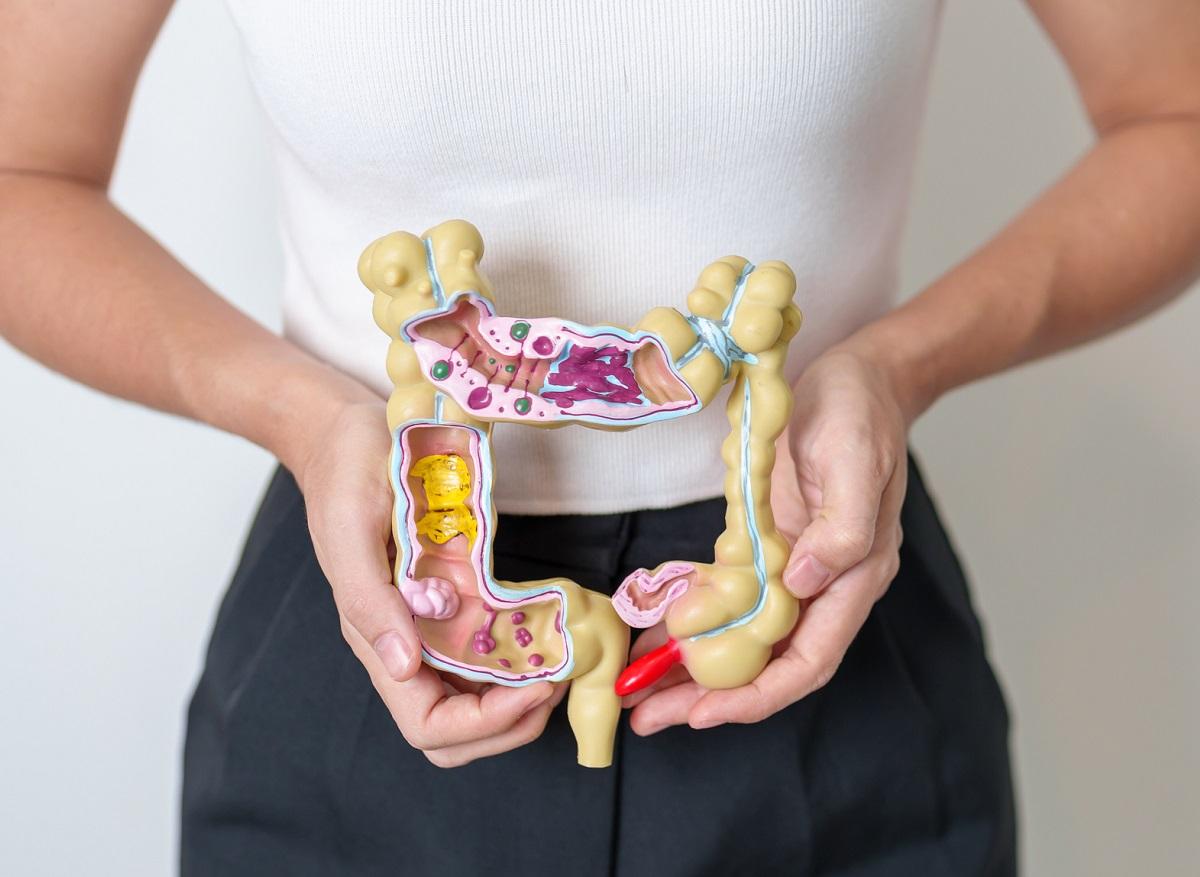The origin of Crohn’s disease is unknown. A new study recently indicated that a norovirus may be responsible for the development of chronic pathology.

- Nearly 120,000 people are affected by Crohn’s disease in France.
- Crohn’s disease results in an alternation of crises of variable intensity and duration, and phases without symptoms, known as remission.
Crohn’s disease is a type of inflammatory bowel disease in which immune defenses meant to attack invading microbes mistakenly target the body’s own digestive tract. In a majority of cases, this condition affects the terminal part of the small intestine which connects the stomach to the colon, the large intestine and the anus.
Crohn’s disease: a genetic mutation would weaken the cells of the intestinal wall
Norovirus is a common infection characterized by vomiting and diarrhea. It is one of many viruses and bacteria that could trigger the onset of Crohn’s disease in patients.
In previous research, it has also been shown that a majority of people with Crohn’s disease have a genetic mutation in their genome that weakens the cells of their intestinal wall. But healthy people are also carriers of this mutation without developing the inflammatory pathology.
A protein that would protect against Crohn’s disease
Researchers from the Grossman Faculty of Medicine at New York University (United States) therefore looked into the question and unveiled a new hypothesis in the scientific journal Nature. According to them, healthy people have T lymphocytes, a type of leukocyte with an important role in the immune response, which secrete an inhibitor of apoptosis 5 (API5), a protein that stops the attack on the cells of the intestinal wall.
For the purposes of this research, the scientists administered an injection of API5 to genetically modified mice carrying the mutation linked to Crohn’s disease in humans. The injected group of mice survived while the entire untreated control group died. According to the researchers, infection with a norovirus prevents the secretion of API5 by T cells and causes the death of intestinal cells.
In a second step, the authors of the study created structures similar to organs from tissue taken from humans carrying the mutation. These structures consisted solely of cells from the abdominal wall. The research team then introduced API5 into these “mini-guts” and found that this treatment protected the cells in the gut wall. The addition of API5-producing T cells also protected the intestinal mucosa. Lcientists have found that patients with Crohn’s disease have 5 to 10 times fewer API5-producing T cells in their intestinal tissues compared to healthy people.
Norovirus weakens production of apoptosis inhibitor 5
“Our study suggests that when norovirus infects people whose ability to produce inhibitor of apoptosis 5 is impaired, it tips the scales toward a full-fledged autoimmune disease,” said Ken H. Cadwell, co-author of the study and professor of microbiology, in a statement.
Despite these promising initial results, tests in humans will be necessary to support this hypothesis. However, researchers are not yet certain that the treatment can be administered safely.

















